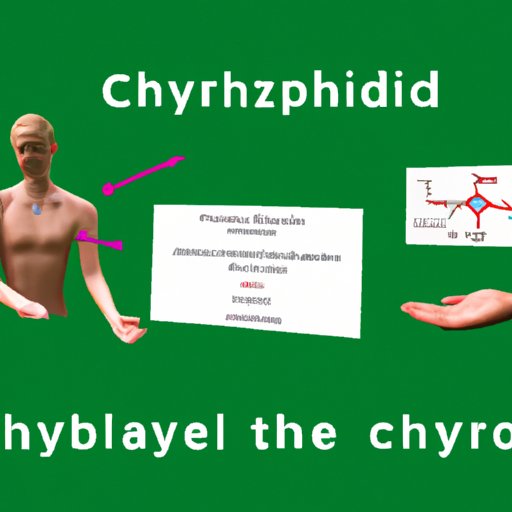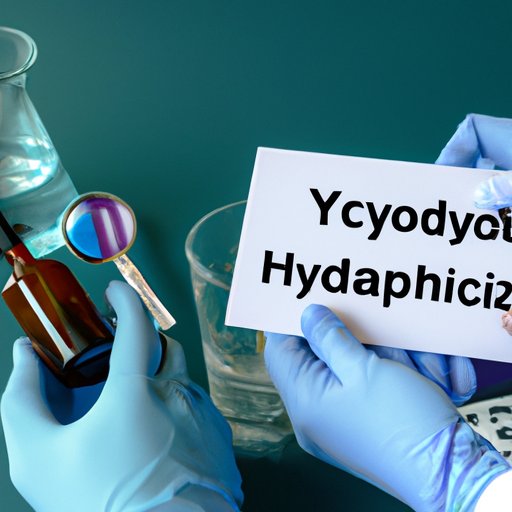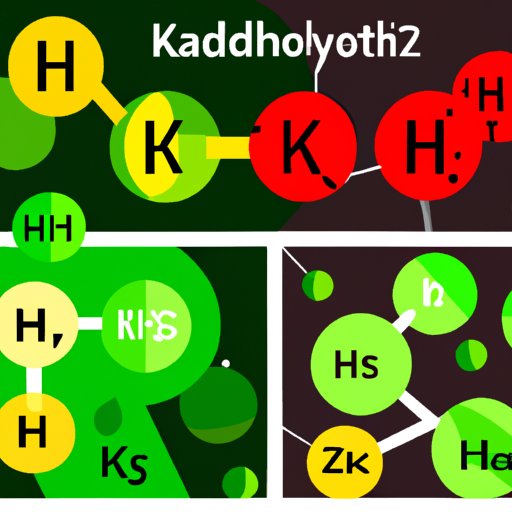Introduction
Hydrochlorothiazide is a prescription diuretic that is used to treat high blood pressure, also known as hypertension. It is also used to reduce fluid retention or edema, which can occur with some types of kidney or heart failure. Hydrochlorothiazide works by increasing the amount of salt and water that is eliminated from the body, which helps to reduce blood pressure and reduce the strain on the heart. In this article, we will be exploring how hydrochlorothiazide works in the human body.

Exploring the Mechanisms Behind Hydrochlorothiazide
Hydrochlorothiazide works by inhibiting the absorption of sodium and chloride ions in the distal convoluted tubule, which is part of the nephron in the kidneys. This causes an increase in the amount of salt and water that is eliminated from the body. The decrease in sodium and chloride ions also leads to a decrease in blood volume, which reduces blood pressure. In addition, hydrochlorothiazide decreases the activity of renin, which is an enzyme produced by the kidneys that helps regulate blood pressure.

Understanding How Hydrochlorothiazide Works in the Body
Hydrochlorothiazide affects both the kidneys and the cardiovascular system. When it comes to blood pressure, hydrochlorothiazide works by decreasing the amount of sodium and water in the body, which reduces the volume of blood. This decreases the pressure in the arteries, which in turn lowers blood pressure. Hydrochlorothiazide also affects the kidneys by reducing the amount of calcium and potassium that is filtered out of the blood. This helps to reduce the strain on the kidneys.
An Overview of Hydrochlorothiazide and Its Effects
In addition to lowering blood pressure, hydrochlorothiazide can also be used to treat edema or fluid retention. It works by increasing the amount of salt and water that is eliminated from the body, which helps to reduce swelling. However, hydrochlorothiazide can also cause some side effects, including low blood pressure, dehydration, dizziness, nausea, and headache.

Examining the Science Behind Hydrochlorothiazide
There have been several clinical studies on the effectiveness of hydrochlorothiazide. In one study, researchers found that hydrochlorothiazide was able to reduce systolic blood pressure by an average of 8.6 mmHg and diastolic blood pressure by an average of 5.3 mmHg. In another study, researchers found that hydrochlorothiazide was able to reduce edema by up to 50%.
On a molecular level, hydrochlorothiazide works by blocking the action of the enzyme carbonic anhydrase. This enzyme is responsible for converting carbon dioxide into bicarbonate, which is necessary for maintaining acid-base balance in the body. By blocking the action of this enzyme, hydrochlorothiazide increases the amount of bicarbonate in the blood, which helps to reduce blood pressure.
Investigating the Function of Hydrochlorothiazide in the Human Body
Hydrochlorothiazide also affects hormones in the body. It increases the production of aldosterone, which is a hormone that helps regulate electrolyte levels in the body. Aldosterone helps the body retain sodium, which helps to reduce blood pressure. It also increases the production of antidiuretic hormone, which helps to reduce the amount of water lost through urination.
In addition, hydrochlorothiazide affects the renin-angiotensin-aldosterone system (RAAS). The RAAS helps to regulate blood pressure. Hydrochlorothiazide works by inhibiting the production of renin, which helps to reduce blood pressure.
Conclusion
Hydrochlorothiazide is a powerful diuretic that is used to treat high blood pressure, edema, and other conditions. It works by increasing the amount of salt and water that is eliminated from the body, which helps to reduce blood pressure and reduce the strain on the heart. It also affects hormones and the renin-angiotensin-aldosterone system, which helps to regulate blood pressure. Several clinical studies have shown that hydrochlorothiazide is effective at reducing blood pressure and edema. It is important to talk to your doctor before taking hydrochlorothiazide, as it can cause side effects.
In conclusion, hydrochlorothiazide is an effective medication that is used to treat high blood pressure and edema. It works by increasing the amount of salt and water that is eliminated from the body, as well as affecting hormones and the renin-angiotensin-aldosterone system. Although hydrochlorothiazide is effective, it can cause side effects, so it is important to talk to your doctor before taking it.
(Note: Is this article not meeting your expectations? Do you have knowledge or insights to share? Unlock new opportunities and expand your reach by joining our authors team. Click Registration to join us and share your expertise with our readers.)
